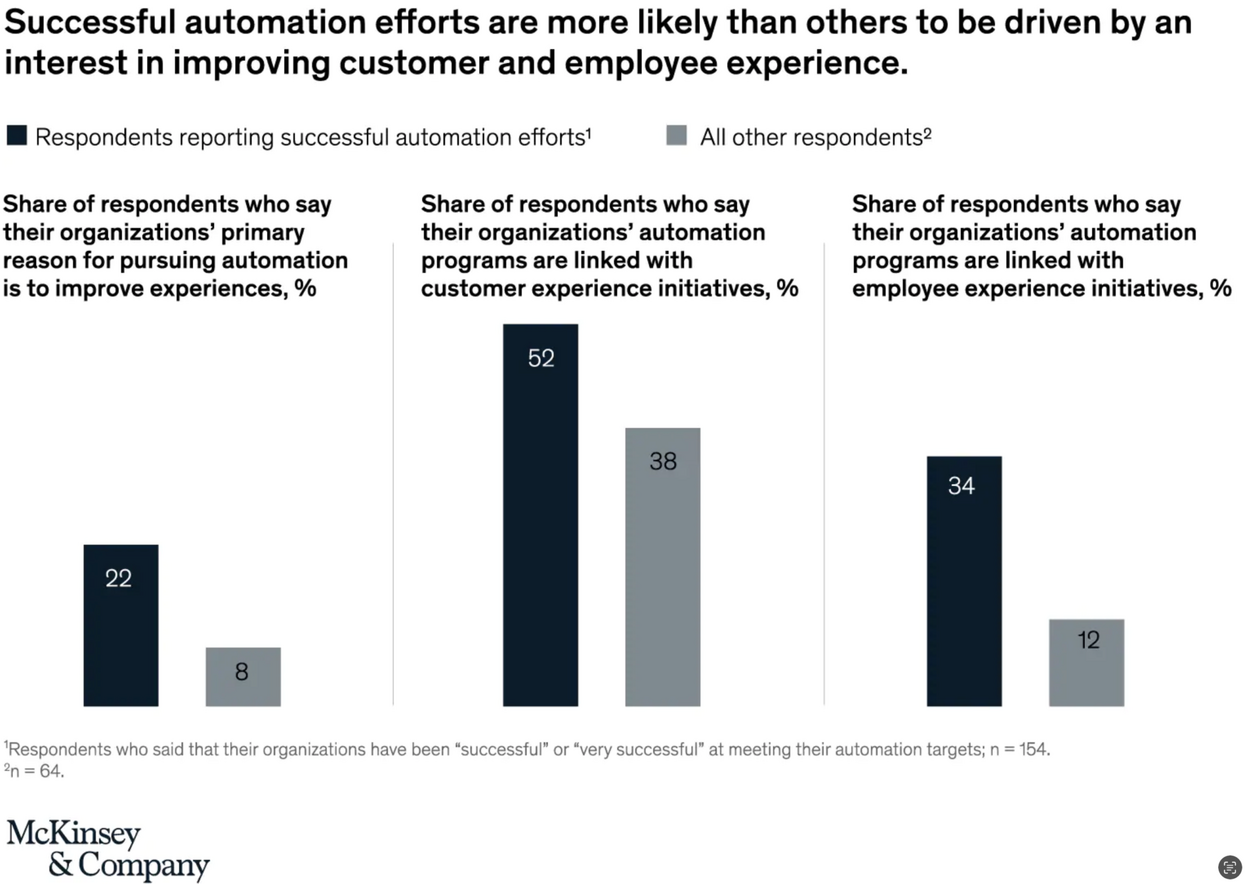blog
Revolutionizing Industries with Workflow Automation: Top Use Cases
By Mohan S AI and ML March 27, 2023

Workflow automation is the use of technology to automate and streamline business processes. It uses software applications and tools to digitize manual tasks, such as data entry, document routing, approvals, and notifications.
As industries brace-up to transform digitally, workflow automation can help organizations improve efficiency, reduce errors, and free up time for employees to focus on important tasks that require human intelligence.
Examples of Workflow Automation for Different Industries
Industries such as healthcare, automotive retail, government agencies, aviation, and real estate can benefit from workflow automation by improving their operations, reducing costs, and increasing productivity. Here’s an insight into how each industry can benefit from workflow automation.
1. Healthcare
From reducing wait times for patients to improving the efficiency of the healthcare workforce, here are some examples of how workflow automation can be used in healthcare:
Patient Registration: Automation of patient registration processes can help speed up the check-in process and reduce the time patients spend waiting in reception areas. This can be done by using electronic patient forms, automated insurance verification, and other digital tools.
Appointment Scheduling: Automating appointment scheduling processes can help reduce errors, minimize wait times, and optimize resource allocation. This can be done by using online scheduling tools, automated reminders, and other digital tools.
Medical Billing: Workflow automation can help streamline medical billing processes, such as claims processing, insurance verification, and payment posting. This can help reduce errors, speed up payments, and free up staff time for other tasks.
Medication Management: Workflow automation can help streamline medication management processes, such as prescription refills, medication ordering, and medication administration. This can help reduce errors and improve patient safety.
Electronic Health Records (EHRs): Automation of EHR processes can help reduce manual data entry, improve data accuracy, and streamline clinical workflows. This can help improve patient care and reduce the administrative burden on healthcare staff.
2. Banking
The banking industry involves managing a large volume of financial transactions, which can be time-consuming and prone to errors. Workflow automation can help banks streamline these processes, making them more efficient, accurate, and secure.
Loan Processing: Workflow automation can help streamline the loan processing workflow, from loan application to approval and disbursement. This can help reduce errors, speed up the approval process, and improve customer experience.
Fraud Detection: Workflow automation can help improve fraud detection processes by automating the identification of suspicious transactions, enabling real-time alerts, and reducing the time required to investigate potential fraud.
Compliance: Workflow automation can help banks meet regulatory compliance requirements by automating processes such as customer due diligence, risk assessment, and transaction monitoring.
Customer Service: Workflow automation can help improve customer service by automating account openings, routine inquiries, enabling real-time alerts, and reducing the time required to investigate customer issues.
3. Logistics and Supply chain
The logistics and supply chain industry involves managing the movement of goods from suppliers to customers, and it involves a large number of tasks, such as inventory management, order processing, and transportation management. Workflow automation can help streamline these processes, making them more efficient, accurate, and cost-effective.
Here are some examples of how workflow automation can be used in logistics and supply chain management:
Order Processing: Automation of order processing can help streamline the order-to-cash workflow, from order receipt to fulfillment and invoicing. This can help reduce errors, speed up the fulfillment process, and improve customer experience.
Inventory Management: Workflow automation can help optimize inventory management by automating processes such as inventory tracking, reorder point calculations, and stock replenishment. This can help reduce stock-outs and overstocks, improve inventory accuracy, and increase efficiency.
Transportation Management: Automation of transportation management processes can help improve shipment visibility, reduce transportation costs, and optimize carrier selection. This can be done by using real-time tracking tools, automated freight bill auditing, and other digital tools.
Quality Control: Workflow automation can help improve quality control processes, such as product inspections, supplier audits, and customer complaint handling. This can help reduce errors, improve product quality, and increase customer satisfaction.
Document Management: Workflow automation can help logistics and supply chain management teams manage documents more efficiently by automating document creation, approval, and storage. This can help reduce errors and speed up document processing times.
4. Retail
The retail industry involves many repetitive and time-consuming tasks, such as inventory management, order processing, and customer service. Workflow automation can help retail businesses streamline these processes, saving time, reducing errors, and improving customer satisfaction.
Inventory Management: Workflow automation can help retailers optimize inventory management by automating processes such as inventory tracking, reorder point calculations, and stock replenishment. This can help reduce stock-outs and overstocks, improve inventory accuracy, and increase efficiency.
Order Processing: Automation of order processing can help streamline the order-to-cash workflow, from order receipt to fulfillment and invoicing. This can help reduce errors, speed up the fulfillment process, and improve customer experience.
Customer Service: Workflow automation can help retailers improve customer service by automating routine inquiries, enabling real-time alerts, and reducing the time required to investigate customer issues.
Store Operations: Workflow automation can help streamline store operations, such as store opening and closing procedures, cash management, and store audits. This can help reduce errors, improve efficiency, and ensure compliance.
Data Analysis: Workflow automation can help retailers analyze data more efficiently by automating processes such as data collection, cleaning, and analysis. This can help retailers make better business decisions and improve customer experience.
5. Insurance
The insurance industry is highly regulated and involves complex processes for underwriting, policy administration, and claims management. Workflow automation can help insurance companies streamline these processes, making them more efficient, accurate, and cost-effective.
Here are some examples of how workflow automation can be used in insurance:
Claims Processing: Automation of claims processing can help streamline the claims workflow, from claim submission to payment. This can help reduce errors, speed up the claims processing time, and improve customer experience.
Underwriting: Workflow automation can help streamline the underwriting process by automating processes such as data collection, risk assessment, and policy issuance. This can help reduce errors and increase efficiency.
Compliance: Workflow automation can help insurance companies meet regulatory compliance requirements by automating processes such as customer due diligence, risk assessment, and transaction monitoring.
Customer Service: Workflow automation can help improve customer service by automating routine inquiries, enabling real-time alerts, and reducing the time required to investigate customer issues.
Fraud Detection: Workflow automation can help improve fraud detection processes by automating the identification of suspicious claims, enabling real-time alerts, and reducing the time required to investigate potential fraud.
6. Real Estate
Real estate is a complex industry that involves many administrative tasks and processes, including property management, sales, and leasing. Workflow automation can help real estate professionals streamline these processes, saving time, reducing errors, and improving efficiency.
Property Management: Workflow automation can help property managers automate routine tasks such as rent collection, lease renewals, and maintenance requests. This can help reduce errors, improve efficiency, and free up time for property managers to focus on more important tasks.
Document Signing: With the use of electronic signatures, real estate professionals can complete transactions faster, reduce errors, and eliminate the need for physical paperwork.
Transaction Management: Workflow automation can help real estate agents and brokers manage transactions more efficiently by automating processes such as document creation, signature collection, and compliance checks. This can help reduce errors, speed up the transaction process, and improve customer experience.
Lead Management: Workflow automation can help real estate agents manage leads more efficiently by automating processes such as lead scoring, follow-up emails, and appointment scheduling. This can help agents prioritize leads, improve efficiency, and increase sales.
Property Inspection: Workflow automation can help real estate agents and property managers automate property inspections, enabling them to identify potential problems more efficiently and schedule maintenance tasks more effectively.
7. Government
Governments often deal with a high volume of paperwork and administrative tasks, which can be time-consuming and prone to errors. Workflow automation can help streamline these processes, making government operations more efficient, cost-effective, and accurate.
Here are some reasons why the government needs workflow automation:
Procurement: Workflow automation can help government agencies automate procurement processes such as request for proposals (RFPs), purchase orders, and vendor management. This can help reduce errors, improve efficiency, and save time and resources.
Permitting and Licensing: Workflow automation can help government agencies automate processes such as permit and license applications, reviews, and approvals. This can help reduce processing times, improve transparency, and provide a better experience for citizens and businesses.
Case Management: Workflow automation can help government agencies manage cases more efficiently, such as legal cases, immigration cases, or social services cases. This can help reduce errors, improve efficiency, and provide a better experience for citizens.
Finance and Accounting: Workflow automation can help government agencies automate financial processes such as budgeting, accounts payable, and accounts receivable. This can help reduce errors, improve efficiency, and save time and resources.
Conclusion
Workflow automation can help businesses identify and eliminate bottlenecks, reduce cycle times, and improve quality, which can lead to increased customer satisfaction and loyalty. By embracing automation, businesses can create a more agile and flexible organization that can adapt to changing business needs.
In conclusion, the benefits of workflow automation are clear, and businesses that invest in automation technologies are likely to reap significant rewards in terms of efficiency, productivity, and profitability.



